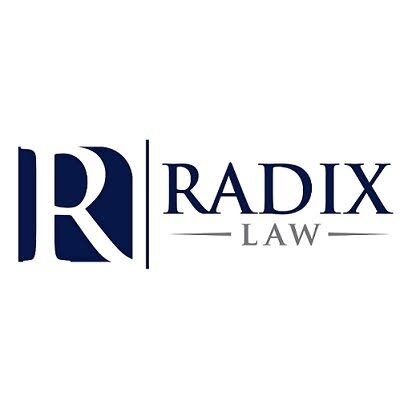Best Probate Lawyers in Scottsdale
Share your needs with us, get contacted by law firms.
Free. Takes 2 min.
List of the best lawyers in Scottsdale, United States
United States Probate Legal Questions answered by Lawyers
Browse our 1 legal question about Probate in United States and read the lawyer answers, or ask your own questions for free.
- My husband passed away five years ago. We have a property in th Philippines and I would like to transfer everything to my child. We are now residing in California, as U.S. citizens and my late husband a Filipino citizen.c
- How can I transfer Title on the property to my child?
-
Lawyer answer by Recososa Law Firm
Hello: We are sorry to hear about the passing of your husband, and we extend our deepest condolences. Regarding your concern, since your husband was a Filipino citizen and you are now both U.S. citizens residing in California, the property...
Read full answer
About Probate Law in Scottsdale, United States
Probate is the legal process of administering a deceased person's estate, ensuring that their debts are paid and their assets are distributed according to their will or state law. In Scottsdale, United States, probate proceedings are typically handled by the Superior Court of Maricopa County.
Why You May Need a Lawyer
You may need a lawyer to assist you with probate in Scottsdale if you are facing complex issues such as disputes over inheritance, challenges to the validity of a will, or if you need help navigating the legal requirements of the probate process.
Local Laws Overview
In Scottsdale, United States, probate laws are governed by the Arizona Revised Statutes, Title 14 (Trusts, Estates, and Protective Proceedings). Some key aspects of local laws that are particularly relevant to probate include rules regarding the appointment of a personal representative, the distribution of assets, and the payment of debts.
Frequently Asked Questions
Q: What is probate?
A: Probate is the legal process of administering a deceased person's estate, which includes identifying and inventorying assets, paying debts, and distributing assets to beneficiaries.
Q: Do all estates go through probate?
A: Not all estates go through probate. Small estates with a total value under a certain threshold may qualify for simplified probate procedures or may be exempt from probate altogether.
Q: How long does the probate process take?
A: The length of the probate process can vary depending on the complexity of the estate, any disputes that arise, and the caseload of the court. It can range from a few months to several years.
Q: Do I need a lawyer for probate?
A: While it is possible to navigate the probate process without a lawyer, having legal representation can help ensure that the process runs smoothly and that your rights are protected.
Q: Can a will be contested during probate?
A: Yes, a will can be contested during probate if someone believes it is invalid due to factors such as undue influence, lack of capacity, or fraud.
Q: What is a personal representative in probate?
A: A personal representative, also known as an executor or administrator, is responsible for managing the probate process, including inventorying assets, paying debts, and distributing assets to beneficiaries.
Q: How are debts handled in probate?
A: Debts of the deceased person are typically paid from the estate's assets before any remaining assets are distributed to beneficiaries.
Q: Can probate be avoided?
A: There are estate planning strategies, such as creating a living trust or naming beneficiaries on financial accounts, that can help assets avoid probate and pass directly to beneficiaries.
Q: What happens if someone dies without a will?
A: If someone dies without a will, their estate will be distributed according to state intestacy laws, which dictate how assets are distributed among surviving family members.
Q: How can I find out if a will has been filed for probate?
A: You can contact the Superior Court of Maricopa County in Scottsdale to inquire about the probate of a specific individual's estate and whether a will has been filed.
Additional Resources
For more information on probate in Scottsdale, United States, you can visit the Arizona Supreme Court's website or contact the Maricopa County Superior Court Probate Department.
Next Steps
If you are in need of legal assistance with probate in Scottsdale, United States, consider consulting with a probate attorney to discuss your specific situation and determine the best course of action. They can guide you through the probate process and help ensure that your rights and interests are protected.
Lawzana helps you find the best lawyers and law firms in Scottsdale through a curated and pre-screened list of qualified legal professionals. Our platform offers rankings and detailed profiles of attorneys and law firms, allowing you to compare based on practice areas, including Probate, experience, and client feedback.
Each profile includes a description of the firm's areas of practice, client reviews, team members and partners, year of establishment, spoken languages, office locations, contact information, social media presence, and any published articles or resources. Most firms on our platform speak English and are experienced in both local and international legal matters.
Get a quote from top-rated law firms in Scottsdale, United States — quickly, securely, and without unnecessary hassle.
Disclaimer:
The information provided on this page is for general informational purposes only and does not constitute legal advice. While we strive to ensure the accuracy and relevance of the content, legal information may change over time, and interpretations of the law can vary. You should always consult with a qualified legal professional for advice specific to your situation.
We disclaim all liability for actions taken or not taken based on the content of this page. If you believe any information is incorrect or outdated, please contact us, and we will review and update it where appropriate.








